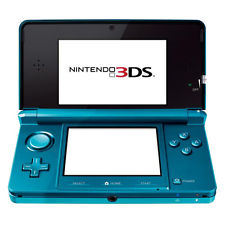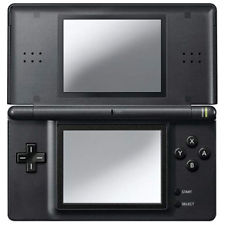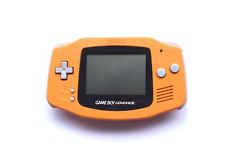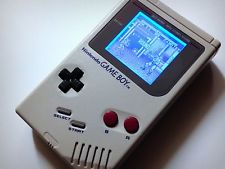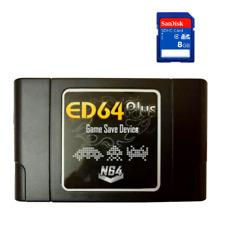|
September 16th, 2009, 21:27 Posted By: wraggster
After new price cuts announced last week, Apple's iPhone and iPod Touch are closer to taking down the likes of Nintendo's DS and Sony's PSP handhelds. But are the iPhone and iPod Touch really "DS killers"?
Before Apple ( AAPL - news - people ) can join the videogame big leagues, it needs to deal with three major issues: the installed base, pricing model and consumer perception.
First, some context. At Apple's "Rock n' Roll" conference last week, Steve Jobs and Phil Schiller basically called out Nintendo ( NTDOY.PK - news - people ) and Sony ( SNE - news - people ) over their respective handhelds, billing the iPhone line as the "next level fun" in portable gaming. Apple showed some overly simplistic charts demonstrating that the App Store had 21,178 games, while the DS had only 3,680 and the PSP 607.
In an otherwise ho-hum conference, this smack talk sent the blogosphere into a tizzy, including a debate over whether Jobs "spun" The New York Times by explaining away the decision not to include a camera in the iPod Touch as a way to keep the cost down because Touch was a "game machine" and the "lowest-cost way to the App Store."
Now, let's look at where things stand.
Installed base: Schiller claims Apple has sold a total of 50 million iPhone and Touch units combined (30 million iPhones and 20 million Touches). Games are the most popular download on the App Store, with a recent comScore report noting that nearly one in three iPhone users have downloaded at least one game. IPhone users can access the App Store more regularly than iPod Touch users who are limited to a wi-fi connection. But if we do include iPod Touch users in the above figure, that means Apple has a videogame installed base of around 16.5 million.
Meanwhile, Nintendo has sold over 100 million DS units, with each user purchasing at least one game, a significantly higher installed base than Apple's. Even Sony has sold over 50 million PSP units.
To be sure, Apple has been doing extremely well with sales, reaching the 50 million mark in just two years since the launch of the first iPhone. The Nintendo DS took three years to reach that mark; Sony's PSP, around four years. Still, even if iPhones and Touches continue to sell well and the percentage of users downloading games from the App Store increases, Apple is still a few years off from having an installed base to rival that of its competitors here.
Pricing model: To produce the caliber of game titles available for the DS and PSP, developers and publishers will want more profit than they can currently get from selling a game through the App Store.
Jesse Divnich, director of analyst services at Electronic Entertainment Design and Research, says the average DS and PSP game that retails for $26 can bring in $13 in gross profits; the other $13 goes to markup, royalties and distribution. App Store games typically range from free to $10, with Apple taking a 30% cut of sales. Thus, even a high-end $10 title on the App Store will yield only $7 in gross profits to publishers, or a little more than half of what an average DS or PSP game would yield.
Making the App Store even less attractive to developers is the touted abundance of titles. For example, a new skateboarding game on the DS would have few, if any, competitors, while on the App Store, it might share "shelf space" with over a dozen other skateboarding games, of varying levels of quality.
Consumer perception: There is little debate over whether the DS and PSP are serious videogame platforms. There is a lot more debate over whether that is true of the iPhone and iPod Touch. And that consumer perception isn't something that will change overnight; rather, it often takes years for people to adjust their currently held views of a product.
So, Apple still has a lot of catching up to do before game publishers and players will view the iPhone as a major player in the industry. But how much catching up?
Divnich says that "a gaming platform needs to have an installed base greater than 20 million with an average gross profit of at least $9 per unit before any major publisher or developer can take it seriously."
On the other hand, there are areas where the iPhone and Touch are positioned to take the lead. Simon Jeffery, chief publishing officer for iPhone games developer Ngmoco, sees the iPhone as a platform on which social games will flourish, taking advantage of the device's connectivity and mobility. "Games like 'Farmville' and 'Mafia Wars' in the social gaming world are attracting hardcore gamers," Jeffrey says. "They're becoming engaged and find that while these games are more simplistic, they're actually pretty fun."
Thus, we might be seeing the start of disruption in the games industry, but for the disruption to really get going, both game publishers and consumers will have to adjust their expectations of the market. Yes, Apple's on the radar, but a serious contender? Maybe in a few years if the company is able to overcome its trio of obstacles.
http://news.alibaba.com/article/deta...ller%2527.html
For more information and downloads, click here!
 There are 4 comments - Join In and Discuss Here There are 4 comments - Join In and Discuss Here
|
|
 NES
NES





